Ministerial sessions and keynote speeches on the programme of the XXVI World Road Congress
6-10 October 2019, Abu Dhabi (United Arab Emirates)
43 ministers and 7 keynote speakers discussed issues such as land use planning, artificial intelligence and future transport networks in Abu Dhabi from 6 to 10 October 2019.
Ministerial sessions
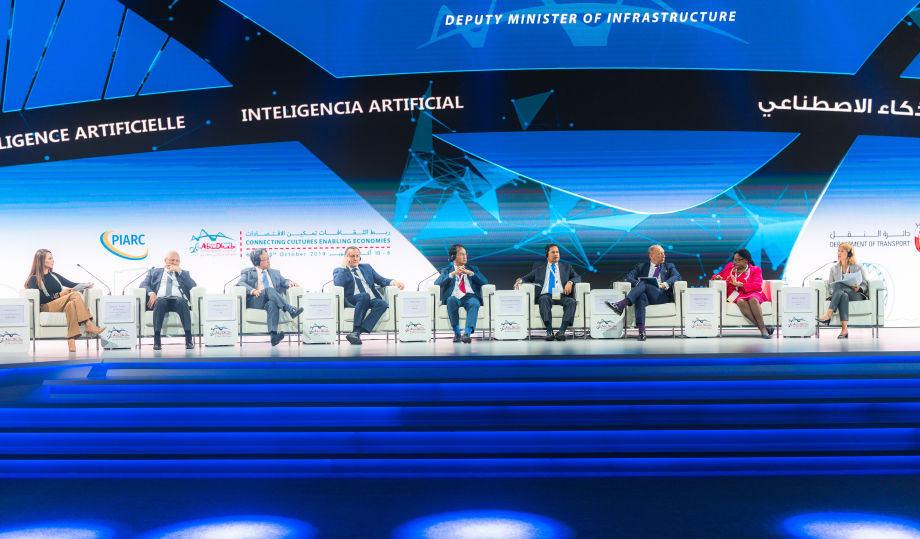
The first day of the World Road Congress was marked by three ministerial sessions, key components of the programme, attended by 43 ministers and an audience of over 3,000 people. Speakers were able to discuss land use planning, artificial intelligence and the future of transport, while stressing the importance for countries to work together.
- Land use planning
The first ministerial session on land use planning, opened by Claude Van Rooten, President of PIARC, provided an interesting insight into the critical need for future planning. Among the topics analysed were how governments can contribute to reducing congestion through smart mobility and exploring options for determining whether it is necessary to travel long distances.
The ministers of the following countries were present: Andorra, Barbados, Burundi, Czech Republic, Ethiopia, Mali, Paraguay, Scotland (UK).
- Artificial intelligence in the road sector
The session on artificial intelligence in the road sector, opened by His Excellency Omar bin Sultan Al Olama, Minister of State for Artificial Intelligence in the UAE, allowed ministers to discuss technological revolutions. With the introduction of autonomous cars and electric cars on roads, ministers explained how innovative systems can improve transport services and how governments can help operators adopt these technological tools.
The ministers of the following countries were present: Angola, Japan, Lithuania, Malaysia, Nicaragua, Serbia, South Africa, Ukraine.
- Tomorrow's transport networks
The third and final session, opened by Young Tae Kim, ITF Secretary General, focused on the future of transport and how connected technologies and innovative services can change the way transport services are provided.
The ministers of the following countries were present:
Australia, Cambodia, Equatorial
Guinea, Korea, Montenegro, Myanmar, Senegal, Singapore, Spain, Sweden, United Kingdom.
Keynote speeches
The ministerial perspective on the road sector was complemented by the vision of internationally recognized opinion leaders who addressed the audience on various topics:
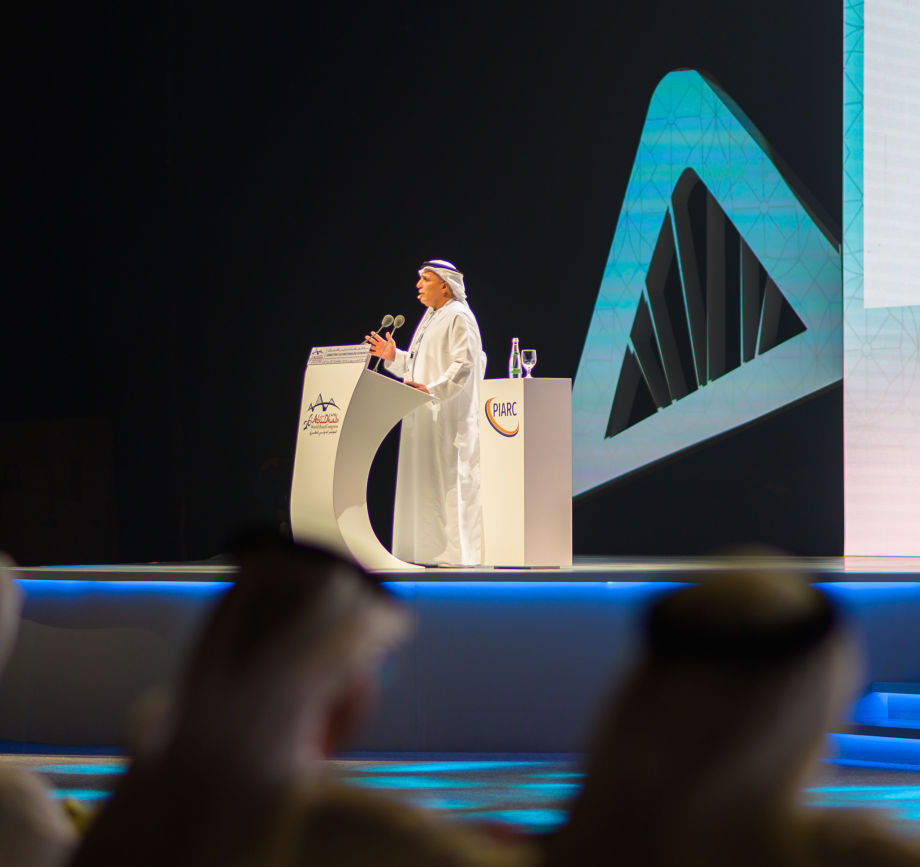
- Excellence in infrastructure projects
His Excellency Mattar Al Tayer, Managing Director and Chairman of the Board of Directors of the Dubai Roads and Transport Authority, gave a speech on Dubai's transition as a model city for transport worldwide and on the Emirate's main projects. The main pillars of this success were illustrated through two videos, highlighting Dubai's development over time.
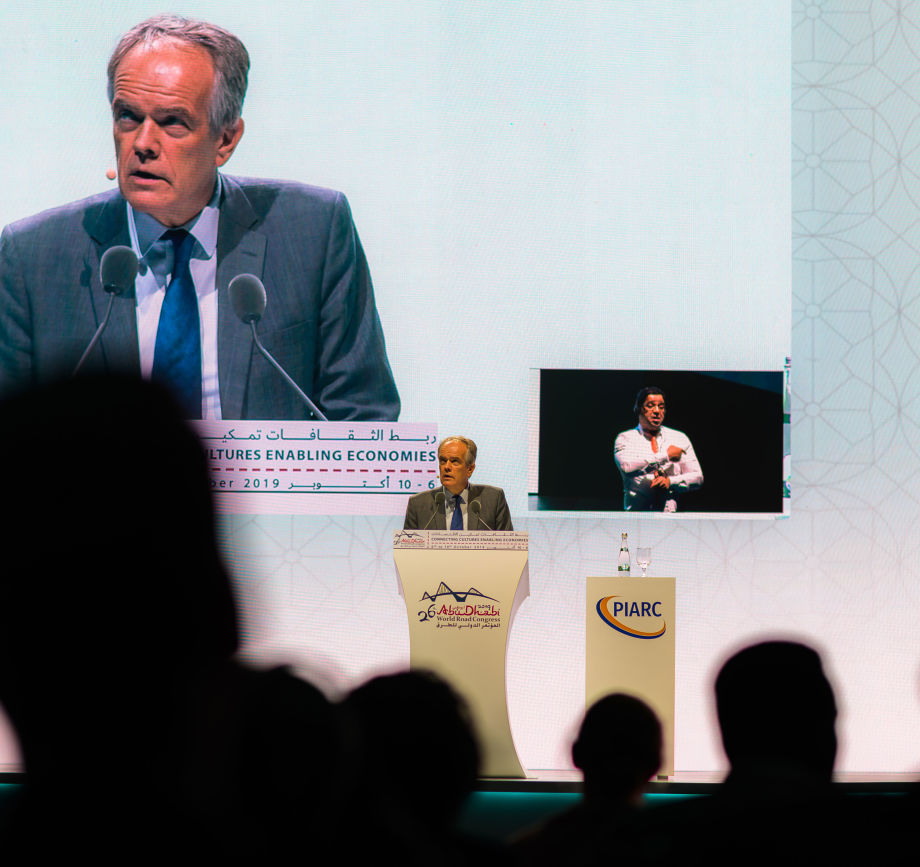
- Road safety: a global challenge for health and development
Dr. Etienne Krug, Director of the Department of Social Determinants of Health of the World Health Organization, gave a powerful presentation on the importance of human life, the impact of road transport and the harmony between the two. Rigorous statistics have been provided, demonstrating the seriousness of the road safety situation. However, progress has been reported, with the upward trend in road disasters being halted by targeted policies, efforts and strategies. Also, a message of hope was shared as we enter a new digital era.
"Roads are not only for cars, roads are for everyone"
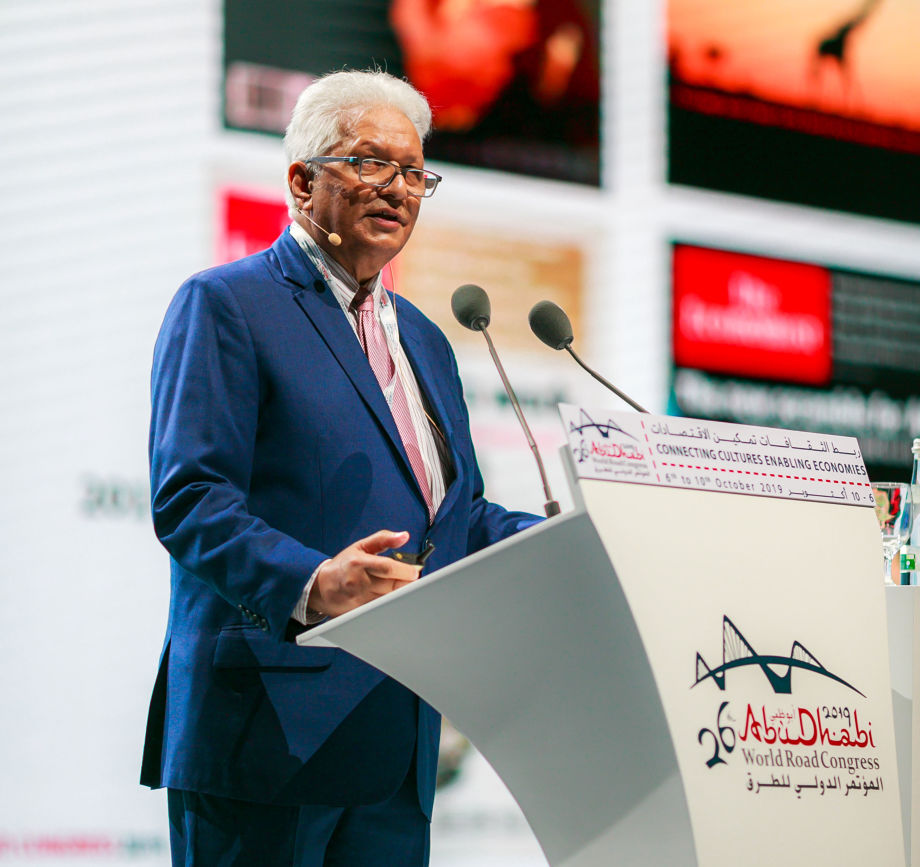
- Strengthening infrastructure for social cohesion and trade in Africa
Nazir Alli, Founder and former Director General of the National Roads Agency of South Africa (Sanral), stressed the importance of improving road infrastructure for social cohesion and trade in Africa. With 54 countries on the African continent, road links are more than vital for supplies, such as food and medicine. Currently, the African population growth rate is 1.1 per cent and is expected to be around 2.25 per cent by 2030: greater efficiency, safety and management of these supplies are therefore essential.
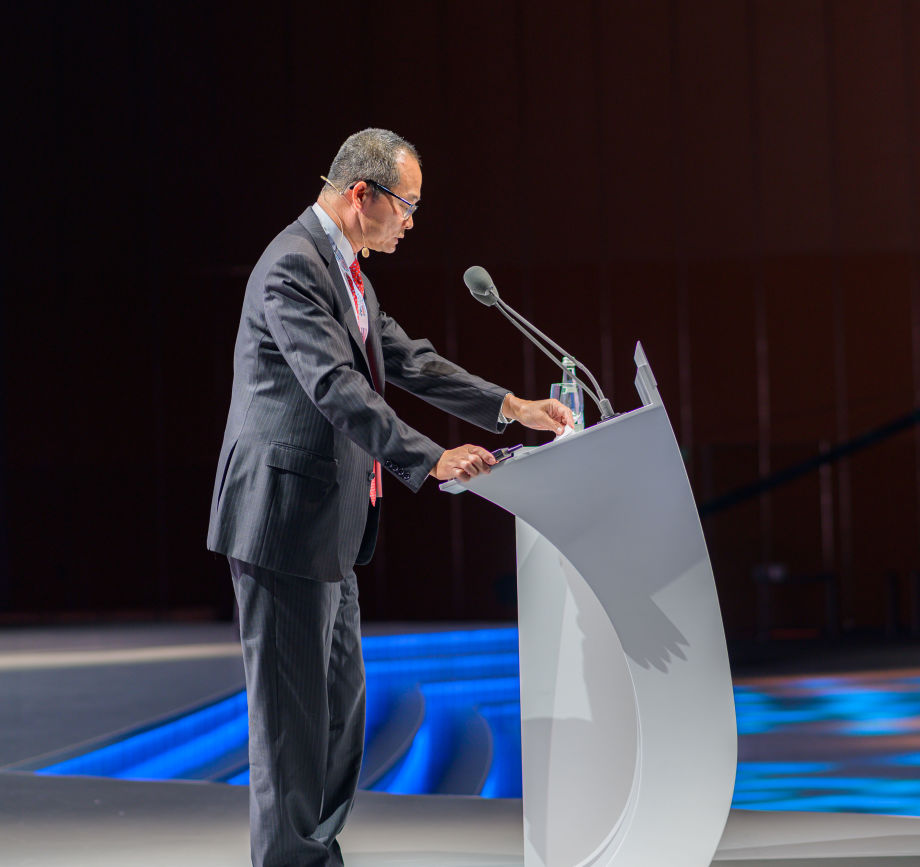
- The path to sustainable transport: meeting the financial challenge
Guangzhe Chen, International Director and Regional Director in charge of global transport for the South Asian Infrastructure Department of the World Bank, spoke about the rapid growth of the middle class leading to a very high demand for mobility solutions. One of the reasons for this change would be the financial challenge, including rising debt and an investment deficit. The challenge now is to find new and more innovative ways to achieve long-term financial sustainability, while improving the quality of infrastructure spending.
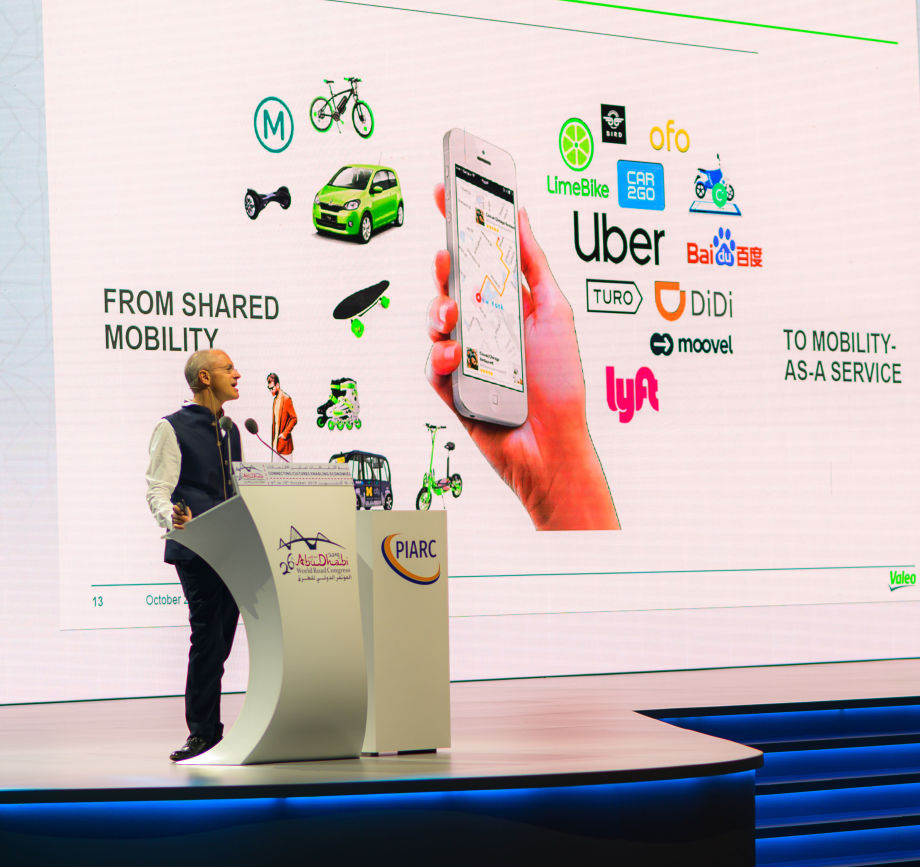
- Collaborative research and the challenge of intelligent road mobility (global approach of suppliers)
Jean-Luc Di Paola-Galloni, Deputy Director of Public Affairs and Sustainable Development of the Valeo Group, presented the vision of roads from the perspective of the automotive industry (including suppliers) and the world of technology. Highlighting the growing mobility challenges and the radical path of electrification, digitisation and automation, he stressed the importance of new integrated and collaborative research programmes to guide vast opportunities and identify risks.
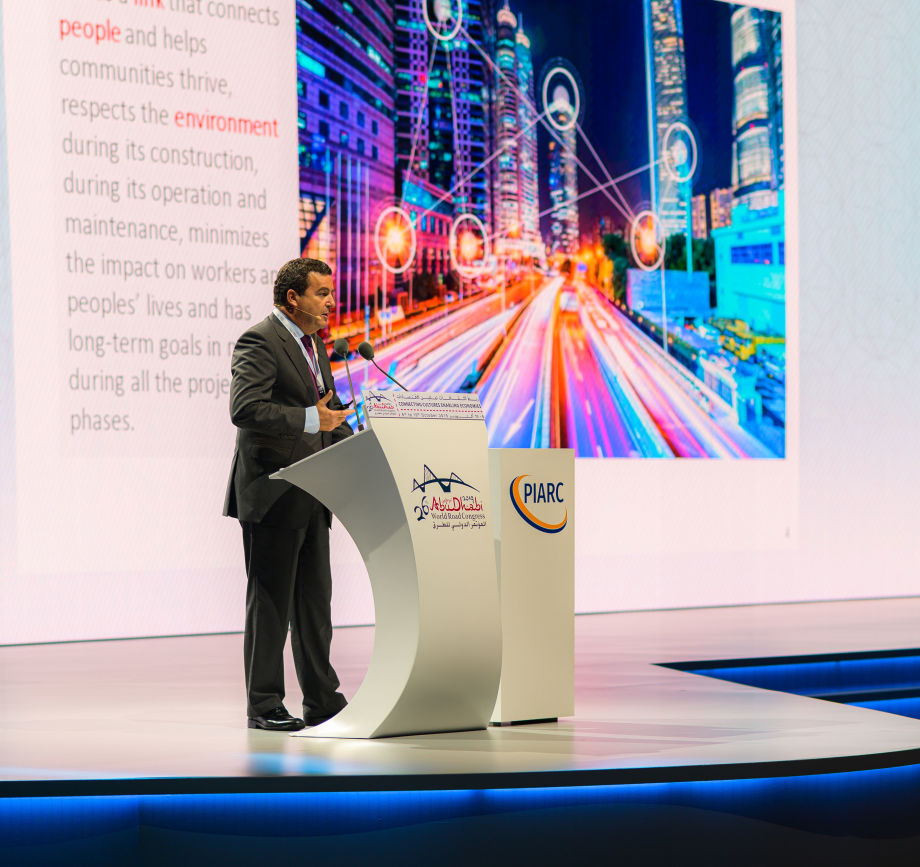
- Role of the Private Sector in the Provision of Sustainable Infrastructure
Jesús Sancho, President and CEO of Acciona Middle East, presented the responsibility of the private sector to meet future challenges, highlighting the untapped potential of sustainability. He highlighted Acciona's own taxonomy to prioritize economic activities according to performance criteria against six key environmental objectives, thus quantifying the calculated effects. He stressed that clients are sensitive to this prism and encouraged more public authorities to adopt this approach.
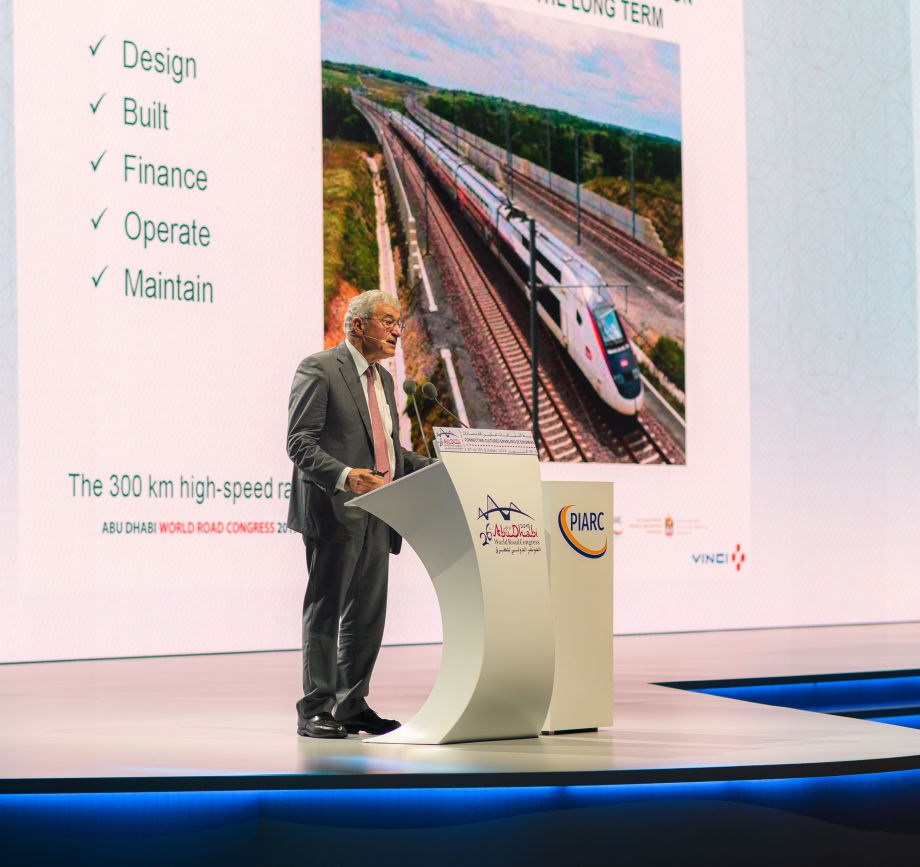
- How does a global construction company work with governments to build resilient transport systems?
André Broto, Director of Strategy at Vinci Autoroutes, addressed the new challenges facing construction companies and concessionaires: How to mobilize to meet global challenges and how best to balance economic, social and environmental performance. The importance of an integrated model that incorporates the asset life cycle into the rapidly changing digital environment will be essential to meet tomorrow's challenges, as will be the need for companies to respond by proposing new ways to engage stakeholders.
Find out more:
- Relive the opening and closing ceremonies, the ministers' session and the opening speeches:
- Opening ceremony
- Ministers sessions
- Keynote speeches october 7th
- Keynote speeches october 8th
- Keynote speeches october 9th
- Closing ceremony